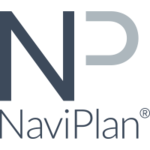Description

FactSet

Ledgy
Comprehensive Overview: FactSet vs Ledgy
FactSet and Ledgy serve distinct primary functions within the finance and equity management sectors, catering to different target markets and user needs.
FactSet
a) Primary Functions and Target Markets: FactSet is a financial data and software company that provides integrated data and software solutions to investment professionals. Its primary functions include:
- Market Analytics and Data Services: Offers extensive data and analytics tools for investment analysis, risk management, and performance measurement.
- Portfolio Management: Provides software for portfolio analysis, trading, and execution.
- Research and Advisory: Supplies comprehensive research tools and advisory services to help with financial forecasting and market analysis.
FactSet primarily targets:
- Institutional Investors: Including hedge funds, asset managers, mutual funds, and investment advisory firms.
- Corporate Finance Departments: Within large corporations for market and competitor analysis.
- Investment Banks: For market data and financial advisory services.
b) Market Share and User Base: FactSet is a well-established player in the financial services industry with a significant user base among institutional investors and financial professionals. Its market share is competitive among other financial data giants such as Bloomberg and Thomson Reuters (Refinitiv).
c) Key Differentiating Factors: FactSet differentiates itself through:
- Comprehensive Data Offerings: Offers a wide range of proprietary research and real-time data integrated into its platforms.
- Customization and Integration: Highly customizable tools that integrate into clients' existing workflows.
- High-Quality Customer Support: Renowned for its exceptional client services and support teams.
Ledgy
a) Primary Functions and Target Markets: Ledgy is a cloud-based equity management platform focused on managing company shares, employee participation plans, and cap tables. Its primary functions include:
- Cap Table Management: Provides tools to automate and manage cap tables with ease.
- Employee Participation Plans: Facilitates the creation and management of employee stock option plans (ESOPs).
- Investor Relations: Offers tools for managing shareholder communications and investor relations.
Ledgy targets:
- Startups and SMBs: Particularly those looking to manage employee equity efficiently.
- Founders and CFOs: Who require streamlined equity management and transparency in ownership structures.
- Investors: Looking for clear and accurate equity reports.
b) Market Share and User Base: Ledgy has a growing presence in the equity management space, especially among tech startups and small to mid-sized businesses in Europe and increasingly in other markets. Its market share is smaller relative to more generalized financial platforms, but it holds a strong niche position.
c) Key Differentiating Factors: Ledgy differentiates itself with:
- User-Friendly Interface: Known for its intuitive, easy-to-use platform that suits startups and CFOs without extensive financial backgrounds.
- Focus on ESOPs and Equity: Unlike broader financial platforms, Ledgy deeply specializes in share management and employee participation.
- Scalability and Flexibility: Ideal for growing companies needing a scalable solution to manage increasingly complex equity structures.
Comparison
While FactSet and Ledgy operate within the broader financial services space, they cater to distinct market needs. FactSet is ideal for large financial institutions requiring comprehensive market data and analytics, whereas Ledgy suits startups and growing companies focused on managing equity and employee shares. Their differentiation primarily lies in target user bases and specialization areas, with FactSet being a longtime player in financial data and Ledgy carving a niche in equity management.
Contact Info

Year founded :
1978
Not Available
Not Available
United States
Not Available

Year founded :
2017
+41 44 585 21 23
Not Available
United Kingdom
http://www.linkedin.com/company/ledgy
Feature Similarity Breakdown: FactSet, Ledgy
When analyzing FactSet and Ledgy, it's important to recognize that they cater to somewhat different segments of the financial and corporate management spectrum. Here's a breakdown of their core features, user interface comparisons, and unique aspects:
a) Core Features in Common
-
Data Management:
- Both platforms offer robust data management capabilities, though the type of data they manage can differ based on their target audiences. FactSet is more focused on financial data analytics while Ledgy handles equity management data.
-
Analytics:
- Analytical tools are integral to both offerings. FactSet provides detailed financial analytics for investment professionals, while Ledgy offers insights into equity distribution and cap table management for businesses.
-
Collaboration Tools:
- Both tools facilitate user collaboration. FactSet allows for collaborative research and analysis, while Ledgy enables multiple stakeholders to engage with equity plans and forecasts.
b) User Interface Comparison
-
FactSet:
- The interface is designed for financial professionals, offering a dashboard rich in financial data, charts, and analytical tools. It can be overwhelming for new users but provides wide-ranging customization options suitable for investment analysis.
-
Ledgy:
- Ledgy’s interface is more streamlined and user-friendly, aimed at founders, employees, and stakeholders looking to manage equity. It often features intuitive navigation, making it accessible even to users with limited financial software experience.
c) Unique Features
-
FactSet:
- Extensive Financial Data Integration: FactSet integrates a wide array of financial data sources covering stocks, bonds, indices, and more, making it a comprehensive tool for financial analysts and portfolio managers.
- Continuous Market Updates: Offers real-time market data updates which are critical for traders and financial analysts to make timely decisions.
-
Ledgy:
- Equity and Cap Table Management: Specific tools for startup and business equity management, allowing detailed cap table management, ESOP (Employee Stock Ownership Plan) modeling, and equity plan simulations.
- Compliance and Reporting: Built-in capabilities for generating compliance reports that are essential for companies managing equity distributions and adhering to regulatory requirements.
Summary
While FactSet and Ledgy share some overlap in data management and analytics, their primary differentiators lie in their specialization: FactSet in broad-spectrum financial data and Ledgy in equity management. Each product’s user interface supports its specific use cases, with FactSet focusing on detailed financial analytics for professionals and Ledgy prioritizing ease of use for equity management.
Features

Not Available

Not Available
Best Fit Use Cases: FactSet, Ledgy
FactSet and Ledgy serve different functions in the financial and business ecosystem, and each is best suited for specific use cases:
FactSet
a) Best Fit Use Cases for FactSet:
-
Investment Management Firms: FactSet is ideal for asset managers, hedge funds, and mutual funds. It provides comprehensive financial data, analytics, and tools for portfolio management, risk assessment, and investment research.
-
Investment Banking: Used by investment bankers for M&A advisory, equity research, and financial modeling. FactSet offers detailed company financials, transaction data, and market analysis.
-
Corporations with Treasury and Finance Departments: Companies with significant finance operations use FactSet for competitive analysis, market monitoring, and risk management.
-
Private Equity and Venture Capital: These firms leverage FactSet for deal sourcing, due diligence, and industry trend analysis. The platform's private company data and valuation tools are particularly valuable.
-
Research Analysts and Academic Institutions: Analysts use FactSet for financial research and generating reports. Academic institutions may also use the platform for educational purposes in finance-related programs.
d) Industry Verticals and Company Sizes:
- Verticals: FactSet caters primarily to the financial services industry, including asset management, investment banking, and research firms. It also serves corporate finance teams across various industries.
- Company Sizes: It is most beneficial for medium to large financial institutions, corporate finance departments of large enterprises, and universities with finance programs.
Ledgy
b) Preferred Scenarios for Ledgy:
-
Startups and Scale-ups: Ledgy is designed for managing equity and cap tables for startups and scaling companies. It simplifies equity distribution, ESOP management, and investor relations.
-
Venture-Backed Companies: Particularly useful for companies that undergo multiple funding rounds, Ledgy helps maintain accurate and transparent equity information for stakeholders.
-
Companies with Complex Equity Structures: Organizations with intricate shareholding patterns and numerous stakeholders benefit from Ledgy’s capability to handle complex cap tables and share transactions.
-
Remote and Growing Teams: Companies with remote teams and multiple stakeholders can benefit from Ledgy’s cloud-based platform, enabling easy collaboration and access to real-time equity data.
d) Industry Verticals and Company Sizes:
- Verticals: Ledgy primarily serves the technology, biotech, and other innovation-driven sectors where equity compensation and complex shareholding structures are common.
- Company Sizes: It is most useful for startups, small to medium enterprises (SMEs), and growing businesses planning for scalability and transparency in ownership management.
In summary, FactSet is geared towards providing detailed financial data and analytics solutions to large financial institutions and corporate finance teams, while Ledgy is tailored to manage equity and ownership structures for startups and growing companies with potentially complex equity frameworks.
Pricing

Pricing Not Available

Pricing Not Available
Metrics History
Metrics History
Comparing teamSize across companies
Conclusion & Final Verdict: FactSet vs Ledgy
To provide a conclusion and final verdict on FactSet and Ledgy, it is crucial to consider the unique strengths and weaknesses of each platform, as well as their value propositions to users.
a) Considering all factors, which product offers the best overall value?
-
FactSet is particularly valuable for financial professionals in need of comprehensive market data, analytics, and research tools. Its value is significant for institutions and individuals who require in-depth financial data, global market insights, and advanced analytical capabilities.
-
Ledgy, on the other hand, is specifically geared towards managing equity and cap tables, offering specialized tools for startups and companies wanting to streamline equity management and simplify shareholder communication.
Overall, the best value depends on the user’s specific needs. For financial research and analysis, FactSet provides more value, while Ledgy is unparalleled for managing equity and stakeholder interactions.
b) Pros and Cons of Choosing FactSet and Ledgy
FactSet:
-
Pros:
- Extensive database with comprehensive financial data.
- Advanced analytics and modeling tools.
- Reliable for market and sector research.
- Strong customer support and user assistance.
-
Cons:
- High cost, potentially prohibitive for small businesses or individual users.
- Complexity in navigating extensive features, which may require training.
- Primarily caters to financial institutions, less suitable for non-financial data needs.
Ledgy:
-
Pros:
- User-friendly interface for managing equity and cap tables.
- Tailored for startups and venture-backed companies.
- Real-time updates and simplified shareholder communication.
- Cost-effective for small to medium-sized businesses.
-
Cons:
- Limited scope beyond equity and cap table management.
- Less suitable for users needing extensive financial market data.
- Potential dependency on the platform for critical equity data management.
c) Recommendations for Users Deciding Between FactSet vs Ledgy
-
Assess Your Needs: Determine whether your primary requirement is financial data and market analysis or equity management and shareholder communication.
-
Consider Budget Constraints: FactSet is a premium product that might not be feasible for all users. If budget is a concern and you are primarily focused on stock management, Ledgy could be the better choice.
-
Evaluate the Learning Curve: FactSet requires more training to utilize its full potential, whereas Ledgy is more straightforward, making it easier to onboard without steep learning curve challenges.
-
Project Future Requirements: Think about your business's growth trajectory. If you anticipate broader financial data needs as you grow, investing in FactSet might offer long-term benefits.
-
Test Trial Options: If possible, leverage any free trials or demos to explore the functionality and compatibility of each platform with your workflow before making a final decision.
Ultimately, choose FactSet if you need robust financial research capabilities and data analytics, and select Ledgy if your focus is on efficient equity management and shareholder relations.



